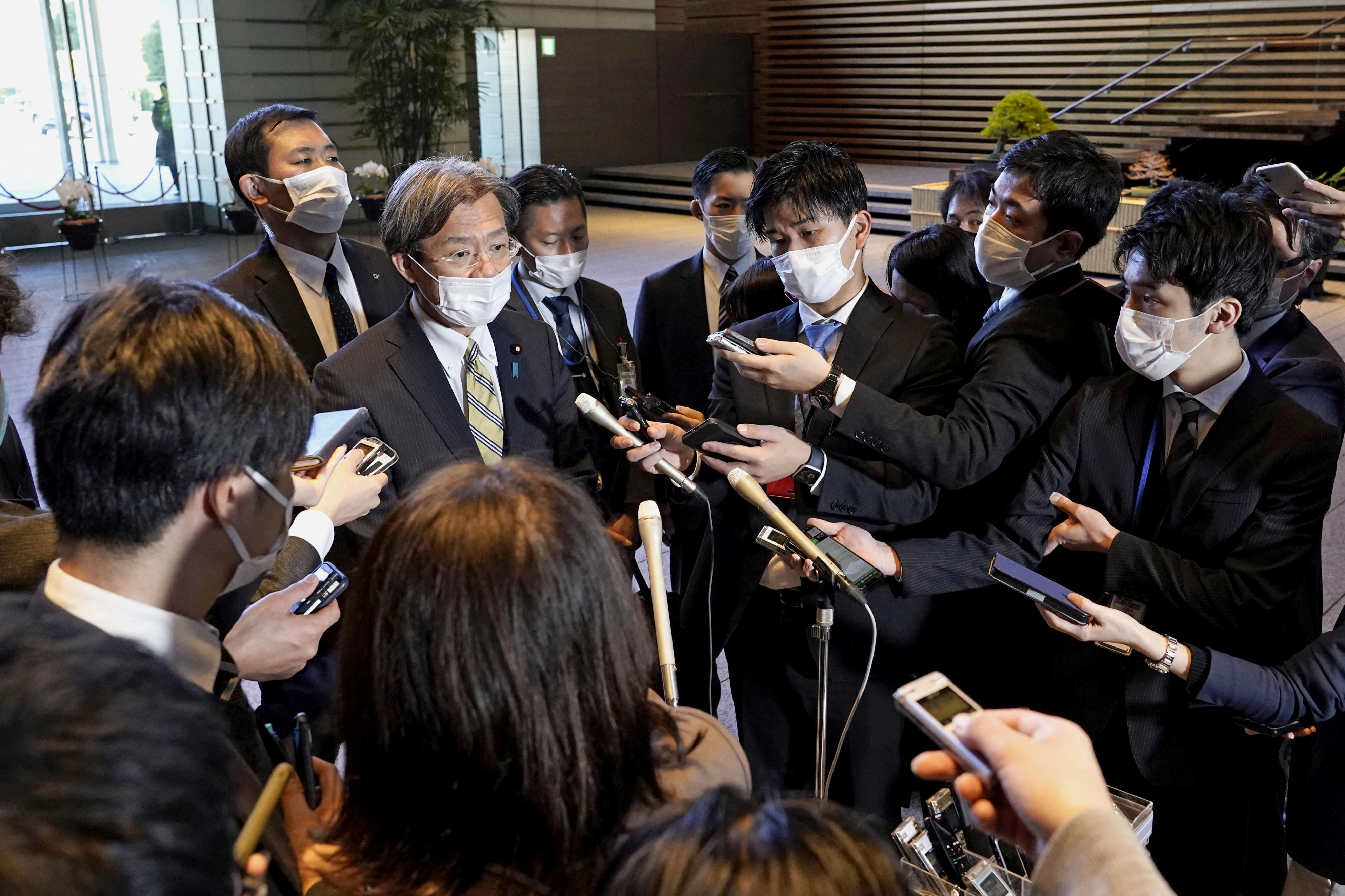Japanese reconstruction minister Kenya Akiba tendered his resignation to Prime Minister Fumio Kishida on Tuesday, becoming the fourth minister to leave the cabinet appointed by Kishida in August. Three other ministers have quit in close succession due to scandals, some involving funding and ties with the Unification Church. The ruling Liberal Democratic Party’s close links with the religious group were revealed after the killing of former premier Shinzo Abe, and have been cited by public opinion poll respondents as a reason behind Kishida’s low approval ratings. The Associated Press has the story:
Japan PM sacks 4th minister over scandal-hit Cabinet
Newslooks- TOKYO (AP)
Japan’s Prime Minister Fumio Kishida on Tuesday dismissed his fourth minister in two months to patch a scandal-tainted Cabinet that has raised questions over his judgment of staff credentials.
Kenya Akiba, minister in charge of reconstruction of Fukushima and other disaster-hit areas, has faced allegations of mishandling political and election funds and of ties to the Unification Church, whose practices and huge donations have raised controversy.
“I have made a heavy decision and submitted my resignation,” Akiba told reporters after meeting with Kishida. He repeated that he has never violated any law in relation to the issues for which he has been criticized and that he was resigning because he didn’t want to trouble the party or stall parliamentary debate because of his presence in the Cabinet.

Kishida tapped former reconstruction minister Hiromichi Watanabe as a replacement. Watanabe’s appointment was to be official after a palace ceremony.
Akiba’s dismissal was seen as Kishida’s attempt to remove an administration’s soft spot that could stall upcoming parliamentary work on a key budget bill, including hefty defense spending aimed at bolstering Japan’s strike capability.

“I take my responsibility of appointment very seriously,” Kishida said. “I will keep fulfilling my political responsibility by continuing to tackle a mountain of problems.”
Jun Azumi, a senior lawmaker of the main opposition Constitutional Democratic Party of Japan who has criticized Kishida for making other slow decisions on his staff, said that “four (dismissals) are too much and the prime minister should be held responsible over their appointment.”
While Kishida has made some of the drastic changes to defense and energy policies, including a new security strategy and maximizing nuclear energy, he’s also seen as being indecisive and slow in risk management of his own government.
Also Tuesday, Kishida accepted the resignation of Internal Affairs Minister Mio Sugita, who has made derogatory remarks against sexual and ethnic minorities in the past.
Sugita said in 2018 that same-sex couples who don’t have children are “unproductive,” and in 2016, she scoffed at those wearing traditional ethnic costumes at an United Nations’ committee meeting as “middle-aged women in costume play.”

Kishida said Sugita submitted her resignation saying that she cannot bend her personal beliefs while she retracted some of her earlier comments.
Kishida had been seen as a stable choice for a leader and won the July elections with a prospect of a three-year mandate to achieve his policies until the next scheduled vote. But his popularity has plummeted over the Liberal Democratic Party’s widespread ties to the Unification Church that surfaced after the assassination of former leader Shinzo Abe.
The suspected shooter told investigators his mother’s donations to the church bankrupted his family and ruined his life. He reportedly targeted Abe as a key figure behind the church’s ties to Japan’s LDP-led government.
Revelations have since surfaced about many LDP lawmakers having friendly ties to the church, which has been criticized as allegedly brainwashing followers into making huge donations. A new law passed earlier this month aims to restrict such activities.
Economic Revitalization Minister Daishiro Yamagiwa quit on Oct. 24 after failing to explain his ties to the Unification Church. In early November, Justice Minister Yasuhiro Hanashi resigned after remarking that his job is low profile and only makes news when he signs the death penalty.







